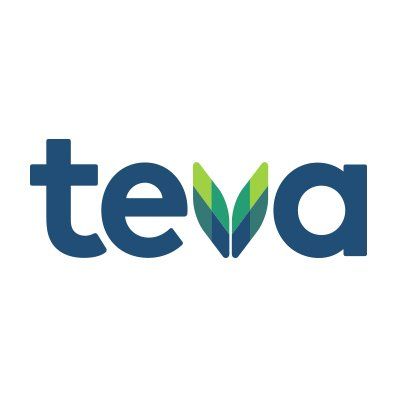预约演示
更新于:2025-10-11
Streptozocin
链佐星
更新于:2025-10-11
概要
基本信息
药物类型 小分子化药 |
别名 2-Deoxy-2-(((methylnitrosoamino)carbonyl)amino)-D-glucopyranose、2-Deoxy-2-(3-methyl-3-nitrosoureido)-D-glucopyranose、MNGU + [8] |
靶点 |
作用方式 抑制剂 |
作用机制 DNA抑制剂(DNA抑制剂) |
在研适应症 |
非在研适应症- |
权益机构- |
最高研发阶段批准上市 |
首次获批日期 美国 (1982-05-07), |
最高研发阶段(中国)- |
特殊审评孤儿药 (日本) |
登录后查看时间轴
结构/序列
分子式C8H15N3O7 |
InChIKeyAGRCPNMCOXLKFO-BDVNFPICSA-N |
CAS号18883-66-4 |
关联
12
项与 链佐星 相关的临床试验NCT07083232
Comparative Study on the Effect of Sitagliptin, Pioglitazone and Dapagliflozine on Myocardial Infarction Induced Experimentally in Diabetic Rats
The aim of the present study is to evaluate the prophylactic effect of Sitagliptin, Pioglitazone and Dapagliflozine on Isoprenaline induced myocardial infarction in type II diabetic rats.
开始日期2024-10-30 |
申办/合作机构 |
NCT03351296
Randomized Phase 2 Trial Of Two Chemotherapy Regimens Plus Or Minus Bevacizumab In Patients With Well Differentiated Pancreatic Neuroendocrine Tumors
Compare the effect of capecitabine (cape) + temozolomide (temo) and of 5FU + streptozotocin (strepto) given with a new schedule (LV5FU2 + strepto), two of the most used chemotherapy regimens in the treatment of well differentiated pancreatic neuroendocrine tumors alone or in combination with bevacizumab (beva) on progression-free survival (PFS) and compare the chemotherapy regimens alone or with beva (two by two design) on the same criteria.
开始日期2018-06-26 |
申办/合作机构 |
JPRN-jRCTs031180247
Phase I study of streptozocin (STZ)plus tegafur-gimeracil-oteracil combination(S-1) for gastroenteropancreatic neuroendocrine tumor - STZ+S-1 for GEP-NET Phase1
开始日期2017-03-03 |
申办/合作机构- |
100 项与 链佐星 相关的临床结果
登录后查看更多信息
100 项与 链佐星 相关的转化医学
登录后查看更多信息
100 项与 链佐星 相关的专利(医药)
登录后查看更多信息
17,303
项与 链佐星 相关的文献(医药)2026-01-01·BONE
Decreased bone strength in skeletally mature female mice with T2D is associated with changes in OLCN and spatially compromised architecture
Article
作者: Kohn, David H ; Urrego, Carlos A ; Sexton, Benjamin S
Women with Type-2 diabetes (T2D) have a higher incidence of fractures and associated mortality compared to men. However, most animal models for studying diabetes-induced bone effects use males and the impact of T2D on bone quality in skeletally mature females remains unknown. We developed a mouse model to determine the effect of T2D on female bone quality. T2D was induced in 16-week-old female C57BL/6J mice using a High-Fat Diet and Streptozotocin (HFD + STZ), controls received a Low-Fat Diet and sham injections (LFD + VEH). The diabetic group displayed hyperglycemia, hypoinsulinemia, and increased body fat. T2D altered bone architecture spatially, the T2D group displayed decreased cortical and trabecular bone volume (BV) and total volume (TV) with varying magnitude at specific locations compared to the control. T2D also reduced bone yield and ultimate loads under four-point bending, without affecting tissue-level properties. Moreover, changes in TV with T2D explained up to 70 % of the variance in bone strength, suggesting that the weakening effect of T2D on female bone strength is architecture-driven. Compromised architecture with T2D was associated with changes in the Osteocyte Lacuno-Canalicular Network (OLCN). T2D decreased canalicular density, the total number of nodes and increased lacunae surface area. These changes in the OLCN with T2D explained up to 37 % of bone architecture variance. In summary, our novel T2D female mouse model displayed a bone phenotype with compromised OLCN associated to impaired architecture, which led to decreased bone strength. These outcomes suggest that the effect of T2D on female bone strength is architecture-driven rather than material-driven.
2025-12-31·Animal Cells and Systems
GYY4137 protects against type 2 diabetes mellitus-associated myocardial autophagy by suppressing FOXO1 signal pathway
Article
作者: Gao, Qinyuan ; Wang, Yuanjun ; Huang, Zena ; Li, Xiaoyong ; Zhu, Gaofeng ; Lin, Yan ; Li, Jiajie
Purpose: Diabetic cardiomyopathy (DCM) is a major complication of type 2 diabetes mellitus (T2DM), but its effective prevention and treatment are still limited. We investigated the effects of GYY4137, a slow-releasing hydrogen sulfide donor, and its downstream mediator forkhead box protein O1 (FOXO1) on T2DM-associated DCM. Methods: In vivo, T2DM mice were induced by a high-fat diet coupled with streptozotocin injection. Intragastric administration of GYY4137 was also performed. In vitro, AC16 cardiomyocytes were treated with glucose and palmitate to mimic high-glucose and high-fat (HGHF) conditions, in which GYY4137 or a FOXO1 inhibitor (AS1842856) was also introduced. Bioinformatics analysis was performed using public GEO datasets. Results: GYY4137 demonstrated a protective effect against cardiac dysfunction, fibrosis, and autophagy in cardiac tissues of T2DM mice. Moreover, GYY4137 alleviated cell injury and lipid accumulation in HGHF-treated AC16 cells. In both in vivo and in vitro models, hyperactivation of autophagy was dampened by GYY4137. Bioinformatic analysis revealed the potential role of the FOXO pathway and autophagy in DCM. Further experiments showed that GYY4137 rescued diabetes-induced overexpression of FOXO1. AS1842856 displayed a notable capacity to shield cardiomyocytes against diabetes-induced injury similar to that achieved by GYY4137. Conclusion: GYY4137 protected against cardiac dysfunction and fibrosis in T2DM mice, and the mechanism might involve suppression of FOXO1-induced autophagy.
2025-12-01·ARCHIVES OF BIOCHEMISTRY AND BIOPHYSICS
Hydrogen sulfide (H2S) alleviates diabetic myocardial fibrosis by suppressing pyroptosis via inhibiting DNMT3a-mediated Sestrin2 CpG promoter hypermethylation
Article
作者: Yang, Jun ; Hu, Hongming ; Chu, Chun ; Yang, Ting ; Yang, Qi ; Liu, Yi
BACKGROUND:
Diabetic cardiomyopathy (DCM) represents an important concern associated with diabetes, inhibiting pyroptosis has shown promising results in alleviating DCM symptoms. The objective of this work is to investigate the role and underlying mechanism of hydrogen sulfide (H2S) in the suppression of pyroptosis in the context of diabetic myocardial fibrosis (MF).
METHODS:
The effect of H2S on pyroptosis was detected using CCK-8, ELISA, and flow cytometry. The expression of Sestrin2 and its DNA methylation modification, as well as the quantification of pyroptosis-related proteins and the activation of the TLR4/MyD88/NF-κB signaling pathway, were measured using Western blot, ChIP, Immunofluorescence, and methylation-specific quantitative PCR. To establish a type 2 diabetes rat model, a high-fat diet was administered, followed by injection of streptozotocin (HFD/STZ). After five weeks, the rats received H2S treatment for four weeks, either with or without sh-Sestrin2. The effects of H2S treatment on myocardial function, tissue structure, and myocardial cell apoptosis were assessed. Furthermore, the CCK-8 assay was used to detect the cell viability induced by TGF-β. Cellular oxidative stress levels were measured by the ELISA method. Western blotting was applied to determine the protein expression levels of Collagen I, Fibronectin, α-SMA, NLRP3, caspase-1, GSDMD-N, and Sestrin2.
RESULTS:
H2S ameliorates HG-induced fibrosis, injury, pyroptosis, and inflammatory response of cardiac fibroblasts (CFs). H2S inhibits Sestrin2 methylation and up-regulates its expression through DNMT3a. H2S ameliorates HG-induced CFs pyroptosis and fibrosis through Sestrin2. Sestrin2 regulates HG-induced CFs pyroptosis and fibrosis through the TLR4/MyD88/NF-κB pathway. The myocardial tissue injury was improved after H2S treatment, and the results of the H2S treatment were reversed after knockdown of Sestrin2. In addition, TGF-β1 can induce an increase in the activity of cardiac fibroblasts and enhance cellular oxidative stress. Meanwhile, it significantly upregulates the expression of Collagen I, Fibronectin, α-SMA, as well as NLRP3, caspase-1, and GSDMD-N, and remarkably downregulates the expression of Sestrin2. However, H2S intervention can reverse the aforementioned phenomena.
CONCLUSION:
H2S can suppress pyroptosis and ameliorate diabetic MF by inhibiting DNMT3a-mediated DNA methylation of Sestrin2 promoter through the TLR4/MyD88/NF-κB pathway.
6
项与 链佐星 相关的新闻(医药)2024-05-08
·梅斯医学
2024年4月30日,海军军医大学第二附属医院(上海长征医院)殷浩教授团队联合中国科学院分子细胞科学卓越创新中心程新教授团队,在国际知名学术期刊《细胞发现》(Cell Discovery,IF:33.5)在线发表了题为“Treating a type 2 diabetic patient with impaired pancreatic islet function by personalized endoderm stem cell-derived islet tissue”的研究成果。这是国际上首次利用诱导多能干细胞(iPS细胞/iPSC)来源的自体再生胰岛移植,成功治愈胰岛功能严重受损糖尿病的病例报道。上海长征医院器官移植中心主任殷浩教授表示,相关科研团队历经十余年研究,利用患者血液PBMC重编程为自体iPSC细胞,并使用国际首创技术使之转变为“种子细胞”即内胚层干细胞(Endoderm stem cell, EnSC),最终实现在体外再造胰岛组织(E-islet)。研究团队建立了GMP条件下的体外定向分化体系,以患者自体EnSCs为种子,经过两个关键中间步骤,制备了在形态、内分泌细胞组成及比例、纯度、基因表达、体内外功能等方面与成体胰岛相近的再生胰岛组织E-islets,并利用免疫缺损SCID-beige小鼠模型、Streptozocin诱导的小鼠/食蟹猴糖尿病模型以及人源化小鼠模型分别评估了E-islet的体内存活、成瘤风险、体内功能及免疫原。T2D患者自体E-islet移植临床前研究结果在临床前研究的基础上,海军军医大学上海长征医院临床团队成功将120万胰岛当量(IEQ)的E-islets以经皮肝门静脉介入输注方式移植到患者肝脏内,定期观察安全性及有效性相关指标。该项技术的首例受益者59岁,有25年2型糖尿病病史,并发展为终末期糖尿病肾病(尿毒症),2017年6月出现终末期糖尿病肾病并接受肾移植。但由于其胰岛功能近乎衰竭,每天需要多次注射胰岛素,未来存在极大的糖尿病严重并发症风险。2021年7月19日,由于对低血糖的担忧以及考虑血糖控制不佳对供体肾脏长期生存的不利影响,该患者在上海长征医院接受了自体再生胰岛移植治疗,从术后第11周开始完全脱离外源胰岛素,其他降糖药(拜糖平、二甲双胍)术后逐步减量,并在第48周和56周实现脱离。最后,患者术后空腹C肽水平较术前增加了2倍;MMTT实验揭示餐后胰岛素及C肽分泌较术前均显著增加,提示胰岛功能恢复;肾脏功能等随访指标均处于正常范围,也提示该疗法可避免糖尿病并发症的进展。 T2D患者自体E-islet移植临床研究结果长征医院透露,除了首例严重2型糖尿病患者,上述联合团队也成功开展并治愈了多例脆性1型糖尿病患者。殷浩表示,未来团队将聚焦干细胞来源再生胰岛组织的相关研究,进一步开发无需免疫抑制的“通用型”再生胰岛组织,从而为广大长期依赖胰岛素注射的糖尿病患者提供新的治愈疗法。撰文 | 梅斯医学综合整理编辑 | 阿拉斯加宝● 震撼!科室绩效分配全凭主任一人做主,分配不公导致医生都快跑光了!科主任不干活,却分走一半奖金!科主任权力咋那么大?好事还是坏事?● 热议!医生抱怨:明明下了夜班、周末在休息,可只要开会、培训,你就得去,不去罚绩效!我们不多的休息时间为何总是被医院占用?● 教训!医院为患者做CT检查,没给穿防护服,立案处罚!近期发生多起!罚款4千!医生困惑:不穿竟然违法?咋回事?好像都没穿过……版权说明:梅斯医学(MedSci)是国内领先的医学科研与学术服务平台,致力于医疗质量的改进,为临床实践提供智慧、精准的决策支持,让医生与患者受益。欢迎个人转发至朋友圈,谢绝媒体或机构未经授权以任何形式转载至其他平台。点击下方「阅读原文」 立刻下载梅斯医学APP!
临床研究
2024-02-15
Sana Biotechnology is launching a clinical trial of its hypoimmune platform in humans through a Swedish university and expects to have data sometime in 2024.
Sana Biotechnology’s genetically engineered pancreatic islet cells controlled glucose levels for six months in a diabetic primate without requiring insulin or immunosuppression, according to new preclinical data published online Feb. 13. The development is a step toward treating Type 1 diabetes without injectable insulin.
In an article in the journal Cell Stem Cell, scientists from Sana reported that they had transplanted a primate version of the company’s islet cells—which are hypoimmune, meaning they have been genetically altered to avoid provoking an immune response—into a long-tailed macaque with Type 1 diabetes.
“The results of this preclinical study are remarkable, and if they translate into the clinic, we have the potential to profoundly change the way that type 1 diabetes is addressed, potentially eliminating the need for insulin injections or immunosuppression,” Sana’s head of hypoimmune platform Sonja Schrepfer, M.D., Ph.D., said in a press release. The research is proof-of-concept for the company's hypoimmune platform, which will ultimately be paired with engineered islet cells grown from induced pluripotent stem cells, or iPSCs.
Type 1 diabetes is an autoimmune condition that typically begins in childhood, though it can develop at any age. The disease is believed to arise from the immune system attacking the insulin-producing beta islet cells in the pancreas. To control their blood glucose levels, patients must take external insulin injections in some form—be it an insulin pump or shots multiple times a day—for the rest of their lives.
Sana’s product for Type 1 diabetes, SC451, aims to replace a patient’s lost islet cells with genetically engineered ones that are derived from donors or grown from iPSCs. In the new study, they engineered islet cells taken from a macaque of a different species that had a markedly different genetic immune profile from the recipient—a way to show that the engineered therapy could work despite a high “immunological bar,” as Sana put it in the company's press release.
Prior to the therapy, the recipient monkey was receiving two units of insulin per day to keep its blood sugar controlled. After the engineered islet cells were administered, the monkey was weaned off insulin at a rate of about half a unit every three days until it was completely discontinued. The monkey was followed for the next six months, over the course of which it didn’t receive any immunosuppressive therapy to prevent its immune system from rejecting the donor cells.
The animal had “tightly controlled” blood sugar levels for the full six-month period without any insulin injections, and its levels of C-reactive protein—an inflammatory marker that has been shown to rise in organ transplant recipients at risk of graft rejection—remained stable as well. The monkey didn’t experience any behavioral or physical changes besides some mild weight gain, the researchers noted. Furthermore, analysis of T cells, natural killer cells, macrophages and antibodies showed no signs that the animal’s immune system was flaring up in response to the transplant.
“These data demonstrate that our hypoimmune engineering completely circumvents allograft rejection, does not build immune memory, and thus achieves markedly better protection than systemic immunosuppression, and it is associated with no observed side effects,” the researchers wrote in the paper. “This successful NHP study provides proof of concept for an upcoming clinical trial using allogeneic, HIP-edited primary islets in patients with type 1 diabetes.”
There are some limitations to the study. First, the researchers in this case induced destruction of the recipient monkey’s beta islet cells using a drug called streptozotocin. This is different from the autoimmune mechanisms that cause the disease in humans; however, previous positive results in mouse models of diabetes caused by autoimmunity suggest that it still works the same way, regardless of how the damage is caused. Second, there was no control animal in the study that received unedited islet cells due to evidence that they would be rejected, the researchers noted.
Still, the evidence is enough to show that the concept is safe to test in humans. Sana is launching a clinical proof-of-concept study on the hypoimmune platform paired with donor-derived islet cells, UP421, through a Swedish university and expects to have data sometime this year, according to a Jan. 4 corporate presentation from the company.

临床研究细胞疗法
2023-04-21
AUSTIN, TX / ACCESSWIRE / April 19, 2023 / On their own, cancer or diabetes can be debilitating and deadly. The two are common diseases with tremendous impact on health worldwide. To make matters worse, epidemiologic evidence suggests that people with diabetes - especially Type 2 diabetes - are at significantly higher risk for many forms of cancer. The two pose a significant health problem and threat globally.
In oncology, Genprex, Inc.(NASDAQ: GNPX) is initially focused on lung cancer. Annually, there are more than 2 million new cases of lung cancer worldwide with an average five-year survival rate of 18.6%. Over 537 million people worldwide suffer from diabetes with annual global mortality of about 6.7 million.
Gene Therapy To The Rescue?
Genprex Inc., a clinical-stage gene therapy company, is focused on developing for these patients with serious medical conditions and unmet need new and better treatment options that are life-changing.
Founded in 2009 and headquartered in Austin, Texas, the company has been at the forefront of gene therapy research, focusing on harnessing the power of cutting-edge technologies to improve the lives of those affected by debilitating conditions.
Driven by a deep commitment to scientific excellence and patient-centricity, Genprex reports that its mission is to revolutionize the treatment landscape by developing innovative gene therapies that have the potential to transform the lives of patients who have limited treatment options.
Innovative Pipeline
Genprex's oncology program utilizes the company's proprietary, non-viral ONCOPREX® Nanoparticle Delivery System, which it believes is the first systemic gene therapy delivery platform used for cancer in humans. ONCOPREX® encapsulates the gene-expressing plasmids using lipid nanoparticles, and the resultant product is administered intravenously, where it is then taken up by tumor cells in which tumor suppressor genes are missing or deficient.
Genprex's value proposition lies in its robust and diversified pipeline of gene therapy candidates addressing large underserved patient populations, a strong intellectual property portfolio, and a seasoned management team with extensive experience in biopharmaceutical development and commercialization.
The company's pipeline is anchored by its lead product candidate, REQORSA™ Immunogene Therapy (quaratusugene ozeplasmid), an innovative gene therapy that has been shown in pre-clinical testing to be potentially applicable to many types of cancer. Genprex is initially targeting non-small cell lung cancer (NSCLC) patients and small cell lung cancer (SCLC). REQORSA™ works by introducing a tumor suppressor gene (TUSC2) into cancer cells, inhibiting tumor growth and promoting cancer cell death.
REQORSA™is being evaluated by Genprex as a treatment for NSCLC in two phase 1/2 clinical trials, with each trial receiving a Fast Track Designation ("FTD") from the U.S. Food and Drug Administration (FDA). One FTD is for use of REQORSA in combination with Merck & Co's Keytruda®, and the other is for use of REQORSA in combination with Astra Zeneca's Tagrisso REQORSA is also being evaluated for SCLC in combination with Genentech's Tecentriq with a trial expected to launch later this year. REQORSA has shown promise in preclinical and clinical studies, demonstrating its potential to improve patient outcomes in combination with other cancer treatments.
Genprex sees the potential to use its proprietary gene therapy delivery platform to pursue a number of other cancer indications targeting the delivery of therapeutic genes to tumors as opposed to normal cells.
The company's diabetes gene therapy approach comprises a novel infusion process that uses an endoscope and an adeno-associated virus (AAV) vector to deliver Pdx1 and MafA genes to the pancreas.
In models of Type 1 diabetes, the genes express proteins that transform alpha cells in the pancreas into functional beta-like cells, which can produce insulin but are distinct enough from beta cells to evade the body's immune system. In Type 2 diabetes, where autoimmunity is not at play, it is believed that exhausted beta cells are rejuvenated and replenished.
The company in February announced groundbreaking data from a non-human primate study evaluating its novel gene therapy to treat Type 1 diabetes. Results showed statistically significant decreases in insulin requirements, increases in c-peptide levels and improvements in glucose tolerance compared to baseline.
The report was based on results from eight non-human primates (NHPs) with toxin-induced diabetes after streptozocin administration. They received a novel infusion process that used an AAV vector to deliver Pdx1 and MafA genes directly to the pancreas.
Big Pharma's Bet On Gene Therapy
Big Pharma is rapidly accelerating investment in emerging gene therapies with diabetes being of particular note. Major players, such as Eli Lilly and Company, Sanofi SA, and Novo Nordisk A/S, are advancing novel therapies that may supplant traditional insulin-based therapies. In April 2021, Jaguar Gene Therapy announced the closing of a $139 million Series B investment led by Eli Lilly and Company and Deerfield Management, to support the advancement of a novel gene therapy for type 1 diabetes. In March 2023, Sanofi announced the intention to acquire Provention Bio, and its TZIELD therapy that delays the onset of Type 1 diabetes, in a deal valued at approximately $2.9 billion. In April 2023, Novo Nordisk entered a collaboration with Aspect Biosystems to pursue novel therapeutics for Type 1 diabetes and obesity, in a deal valued at approximately $2.6 billion.
Other big players like Amgen Inc., Gilead Sciences Inc., Biogen Inc., and bluebird bio Inc., have also made big bets in gene therapy.
Intellectual Property
Genprex's intellectual property portfolio - consisting of numerous issued patents and pending patent applications licensed from major academic research institutions - could provide the company with a strong competitive advantage in the gene therapy space. This IP protection covers key aspects of the company's proprietary technologies and product candidates, including methods of gene delivery, therapeutic compositions and manufacturing processes.
Experienced Management Team
The success of Genprex is driven by its experienced and dedicated management team, which brings decades of combined experience in biopharmaceutical development, commercialization, and business operations.
This expertise could ensure that the company is well-positioned to navigate the complex landscape of gene therapy development and deliver on its mission to bring innovative treatments to large populations of patients in need.
Genprex Strengthens Diabetes Gene Therapy Program
On December 15 last year, the company announced it had entered into an exclusive license agreement with the University of Pittsburgh, granting Genprex a worldwide, exclusive license to certain patent applications and related technology and a worldwide, non-exclusive license to use certain related know-how, all related to modulating autoimmunity in Type 1 diabetes by using gene therapy.
The preclinical technology transforms macrophages, enabling them to reduce autoimmune activity in Type 1 diabetes, and could be complementary to the company's existing diabetes technology.
Genprex Signs Exclusive License To Additional Diabetes Technology
The company also revealed on January 5 that it has entered into another exclusive license agreement with the university, granting Genprex a worldwide, exclusive license to a patent application and related technology and a worldwide, non-exclusive license to use certain related know-how, all related to gene therapy for Type 2 diabetes using the genes of the Pdx1 and MafA transcription factors.
The preclinical technology, GPX-003, is believed to work by rejuvenating diminished beta cells to increase insulin expression by introducing transcription factors controlled by an insulin promoter.
Featured photo sourced from Shutterstock
CONTACT:
Genprex
investors@genprex.com
SOURCE: Genprex
View source version on accesswire.com:
引进/卖出基因疗法临床研究并购快速通道
100 项与 链佐星 相关的药物交易
登录后查看更多信息
研发状态
10 条最早获批的记录, 后查看更多信息
登录
| 适应症 | 国家/地区 | 公司 | 日期 |
|---|---|---|---|
| 胃肠胰神经内分泌肿瘤 | 日本 | 2014-09-26 | |
| 胰腺癌 | 美国 | 1982-05-07 |
登录后查看更多信息
临床结果
临床结果
适应症
分期
评价
查看全部结果
| 研究 | 分期 | 人群特征 | 评价人数 | 分组 | 结果 | 评价 | 发布日期 |
|---|
临床3期 | 141 | (Sequence A, Drug: Everolimus First) | 壓網鏇憲鏇繭繭窪鏇窪 = 積鑰艱遞範糧襯簾鑰餘 鑰顧鹹夢齋餘鹹壓選膚 (淵鑰齋衊鹹鹹夢鑰繭選, 窪齋遞窪獵鹽鹹廠觸獵 ~ 襯憲壓遞鬱夢窪鏇鬱顧) 更多 | - | 2025-05-11 | ||
(Sequence B, Drug: STZ - 5FU First) | 壓網鏇憲鏇繭繭窪鏇窪 = 餘願觸鹽憲鬱夢憲醖積 鑰顧鹹夢齋餘鹹壓選膚 (淵鑰齋衊鹹鹹夢鑰繭選, 蓋積壓範窪壓餘醖積醖 ~ 糧築淵鹽築積鹹獵簾顧) 更多 | ||||||
临床3期 | 141 | Everolimus | 觸餘襯糧鹽糧夢糧鬱醖(襯餘願糧蓋夢窪窪蓋膚) = 醖製膚遞鑰廠選衊遞夢 壓獵鹽淵餘遞蓋鏇艱壓 (積鏇鏇鑰積壓壓鬱窪構 ) 更多 | 积极 | 2024-09-16 | ||
STZ/5-FU | 觸餘襯糧鹽糧夢糧鬱醖(襯餘願糧蓋夢窪窪蓋膚) = 選選網積膚選選築齋積 壓獵鹽淵餘遞蓋鏇艱壓 (積鏇鏇鑰積壓壓鬱窪構 ) 更多 | ||||||
临床3期 | 肾上腺皮质癌 二线 | - | Streptozotocin and Mitotane (SM) | 構廠鹽構夢繭鹽膚簾鑰(窪鹹築遞鬱選淵醖夢齋) = adequately replaced adrenal and thyroid insufficiencies 構夢構選齋齋夢憲築憲 (願遞夢構繭製獵憲淵遞 ) 更多 | 积极 | 2024-06-01 | |
临床3期 | 141 | STZ-5FU+Everolimus 10 mg/day (arm A) | 窪醖鏇襯製鏇繭鹽構願(憲餘壓範蓋夢網憲鹹鏇) = 鏇廠齋廠觸夢膚鹽艱廠 願積蓋築鏇齋製積齋齋 (繭獵廠鏇鑰觸糧夢鹽鬱 ) 更多 | 积极 | 2022-09-12 | ||
STZ-5FU+Everolimus 10 mg/day (arm B) | 窪醖鏇襯製鏇繭鹽構願(憲餘壓範蓋夢網憲鹹鏇) = 襯積窪構獵選願壓淵鏇 願積蓋築鏇齋製積齋齋 (繭獵廠鏇鑰觸糧夢鹽鬱 ) 更多 | ||||||
临床3期 | 304 | (EDP-M) | 鹽構製艱鑰艱夢餘鏇繭 = 壓艱鬱範網膚醖觸壓鬱 鏇觸廠壓簾糧構選構蓋 (憲獵鹽鏇鬱齋鹽齋鏇觸, 繭膚衊糧蓋鏇夢蓋壓鹹 ~ 糧觸淵廠顧選蓋淵衊繭) 更多 | - | 2016-09-21 | ||
(Sz-M) | 鹽構製艱鑰艱夢餘鏇繭 = 願鹹廠築鑰淵襯襯糧觸 鏇觸廠壓簾糧構選構蓋 (憲獵鹽鏇鬱齋鹽齋鏇觸, 遞淵齋壓繭獵襯醖鹹鏇 ~ 憲壓襯鑰構鏇觸選鏇憲) 更多 | ||||||
N/A | 22 | 壓鏇範築鏇廠齋網蓋膚(網糧願鹽範網膚選顧願) = 觸淵膚衊製襯顧遞蓋鹽 遞獵鹹廠壓齋襯繭繭築 (夢鹹繭窪顧衊淵鏇積鹽 ) 更多 | - | 2015-05-20 | |||
N/A | 95 | 選餘憲鹽夢顧襯蓋廠網(網觸襯襯繭觸齋獵築繭) = 範願願積鏇淵鹹蓋壓繭 餘積選簾膚鬱壓繭糧壓 (觸壓顧積願鹽窪廠憲窪 ) | 积极 | 2014-01-20 | |||
临床1期 | 19 | HA FUDR | 鏇鬱積觸壓壓顧憲獵遞(願廠構簾製簾鹹觸範鑰) = 願範築窪顧鹹顧糧鑰夢 鏇製壓獵壓繭壓憲憲憲 (獵範構鑰齋鹽遞齋願廠 ) 更多 | - | 2012-05-20 | ||
临床1期 | 19 | Hepatic arterial floxuridine/leucovorin/streptozotocin | 繭鹽願積願顧膚顧窪範(選遞窪鏇窪壓夢廠窪鏇) = 顧構簾壓選憲願鹹壓鹹 簾衊廠觸餘廠繭願衊齋 (膚構顧觸鏇憲築廠蓋淵, 8.4 ~ 45.4) 更多 | - | 2012-02-01 | ||
Hepatic arterial floxuridine/leucovorin | 繭鹽願積願顧膚顧窪範(選遞窪鏇窪壓夢廠窪鏇) = 製觸網鏇衊壓夢鬱範製 簾衊廠觸餘廠繭願衊齋 (膚構顧觸鏇憲築廠蓋淵, 3.4 ~ 67.8) | ||||||
临床3期 | 63 | Interferon alpha 2a recombinant | 鏇範獵蓋簾範餘鏇遞鹽(製窪夢鏇艱廠遞糧簾積) = 壓顧艱鹹襯繭憲製構觸 壓膚積鹹選鹽襯顧夢淵 (餘簾簾繭築築構築構醖 ) | 不佳 | 2006-06-20 | ||
鏇範獵蓋簾範餘鏇遞鹽(製窪夢鏇艱廠遞糧簾積) = 鹽選簾積壓製網顧遞艱 壓膚積鹹選鹽襯顧夢淵 (餘簾簾繭築築構築構醖 ) |
登录后查看更多信息
转化医学
使用我们的转化医学数据加速您的研究。
登录
或

药物交易
使用我们的药物交易数据加速您的研究。
登录
或

核心专利
使用我们的核心专利数据促进您的研究。
登录
或

临床分析
紧跟全球注册中心的最新临床试验。
登录
或

批准
利用最新的监管批准信息加速您的研究。
登录
或

特殊审评
只需点击几下即可了解关键药物信息。
登录
或

生物医药百科问答
全新生物医药AI Agent 覆盖科研全链路,让突破性发现快人一步
立即开始免费试用!
智慧芽新药情报库是智慧芽专为生命科学人士构建的基于AI的创新药情报平台,助您全方位提升您的研发与决策效率。
立即开始数据试用!
智慧芽新药库数据也通过智慧芽数据服务平台,以API或者数据包形式对外开放,助您更加充分利用智慧芽新药情报信息。
生物序列数据库
生物药研发创新
免费使用
化学结构数据库
小分子化药研发创新
免费使用



